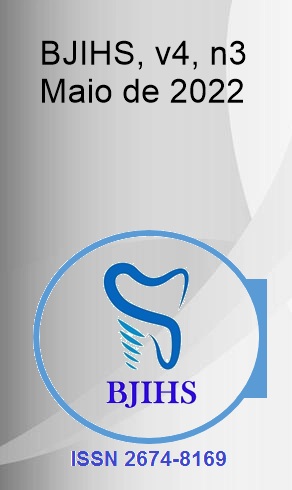Abstract
This article is a sharing in the form of a literal copy of the original “Clinical Care for Severe Acute Respiratory Infection”: World Health Organization; 2022. CC BY-NC-SA 3.0 IGO License .
This sharing aims to boost knowledge about this new disease called COVID 19.
_____________________________________________________________________________________________________________________________________
A global case definition for severe acute respiratory infection (SARI) for surveillance purposes, applicable to all age groups, was first published by the World Health Organization (WHO) in 2011.
The current WHO case definition is:
Patients with acute respiratory infection who have history of fever (or measured fever of
≥ 38 °C), cough and onset within the last 10 days (symptoms within 10 days) and require hospitalization.
References
- Ashana DC, Anesi GL, Liu VX, Escobar GJ, Chesley C, Eneanya ND et al. Equitably allocating resources during crises: racial differences in mortality prediction models. Am J Respir Crit Care Med.
;204(2):178-186.
- Antommaria AH, Sweney J, Poss WB. Critical appraisal of: triaging pediatric critical care resources during a pandemic: ethical and medical considerations. Pediatr Crit Care Med. 2010;11(3):396-400.
- Cardona M, Dobler CC, Koreshe E, Heyland DK, Nguyen RH, Sim JP et al. A catalogue of tools and variables from crisis and routine care to support decision-making about allocation of intensive care beds and ventilator treatment during pandemics: scoping review. J Crit Care. 2021;66:33-43.
- Emanuel EJ, Persad G, Upshur R, Thome B, Parker M, Glickman A et al. Fair allocation of scarce medical resources in the time of Covid-19. N Engl J Med. 2020;382:2049-2055.
- Institute of Medicine. Crisis standards of care: a systems framework for catastrophic disaster response: Volume 1: Introduction and CSC framework. Washington, DC: The National Academies Press; 2012 (https://doi.org/10.17226/13351, accessed 8 September 2021).
Kerr W, Schmidt H. COVID-19 ventilator rationing protocols: why we need to know more about the views of those with most to lose. J Med Ethics. 2021;47(3):133-6.
- Maves RC, Downar J, Dichter JR, Hick JL, Devereaux A, Geiling JA et al. Triage of scarce critical care resources in COVID-19. An implementation guide for regional allocation. CHEST. 2020;158(1):212-225 (https:// journal.chestnet.org/article/S0012-3692(20)30691-7/fulltext?_ ga=2.38446883.1829816982.1631011515-343769087.1631011515,
accessed 8 September 2021).
- Piscitello GM, Kapania EM, Miller WD, Rojas JC, Siegler M, Parker WF. Variation in ventilator allocation guidelines by US state during the coronavirus disease 2019 pandemic: a systematic review. JAMA Netw Open. 2020;3(6):e2012606.
- Scheidegger D, Fumeaux T, Hurst S, Salathé M. COVID-19 pandemic: triage for intensive-care treatment under resource scarcity. Swiss Med Wkly. 2020;150:w20229.
- Schmidt H, Roberts DE, Eneanya ND. Rationing, racism and justice: advancing the debate around ‘colourblind’ COVID-19 ventilator allocation. J Med Ethics. 2021;medethics-2020-106856. doi: 10.1136/ medethics-2020-106856.
- Smith MJ, Silva DS. Ethics for pandemics beyond influenza: Ebola, drug-resistant tuberculosis, and anticipating future ethical challenges in pandemic preparedness and response. Monash Bioeth Rev.
;33(2-3):130-47.
- White DB, Lo B. Mitigating inequities and saving lives with ICU triage during the COVID-19 pandemic. Am J Respir Crit Care Med. 2021;203(3):287-95.
- WHO. Ethical considerations in developing a public health response to pandemic influenza. Geneva: World Health Organization; 2007.
- WHO. Addressing ethical issues in pandemic influenza planning. Discussion papers. Geneva: World Health Organization; 2008.
- WHO. Guidance for managing ethical issues in infectious disease outbreaks. Geneva: World Health Organization; 2016 (https://apps. who.int/iris/bitstream/handle/10665/250580/9789241549837- eng.%20%20pdf?sequence=1, accessed 8 September 2021).

This work is licensed under a Creative Commons Attribution 4.0 International License.
Copyright (c) 2022 Éber Coelho Paraguassu, Jamille dos Passos Lacerda, World Health Organization
